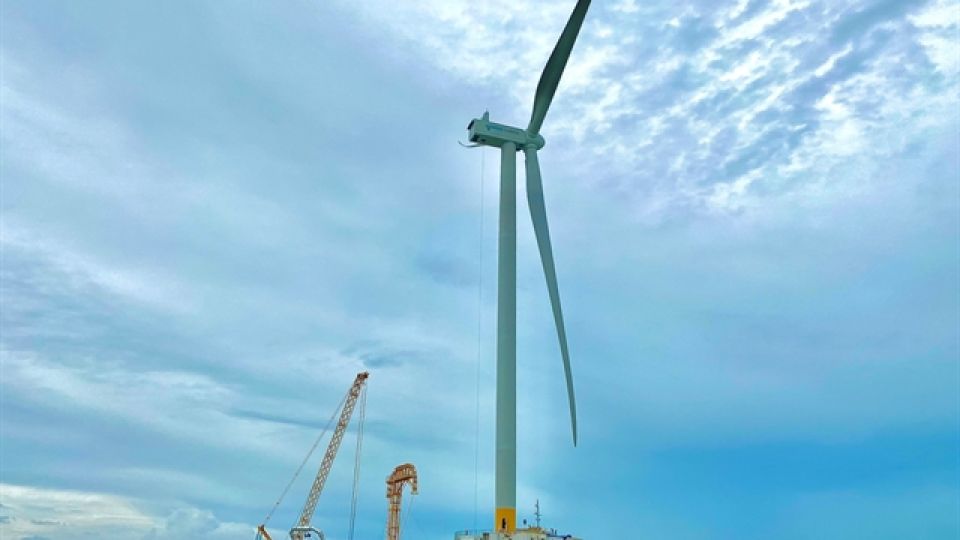May 23, 2022
HANOI — The pandemic has been exposing the unsustainability of current consumption and production models, stressing the need for a green growth strategy and the incorporation of sustainability into the heart of business.
Deputy Minister of Science and Technology Trần Văn Tùng made the remark at the Vietnam – Singapore Board Forum (VSBF) 2022 on Friday.
Tùng underlined innovative start-ups as the catalyst for the efficient use of resources, management enhancement and the better allocation of capital and technology, enabling the business sector to speed up on the path towards sustainability.
In this regard, his ministry and its Singaporean partners have cooperated to introduce the concept of an “open innovative startup ecosystem” (OISE) and launched many OISE-related initiatives in Việt Nam.
“The notion of openness in OISE means the involvement of businesses in innovative start-ups. Start-up founders in Việt Nam have excellent ideas but they need the support of businesses to bring the ideas into life,” he said.
The deputy minister also revealed that the ecosystem has 79 incubators, 40 accelerators and 138 creative spaces by late 2021, involving 219 industrial parks and four high-tech parks.
Đỗ Phương Dung, a representative from the Ministry of Industry and Trade (MoIT), underscored Singapore’s advantages in terms of digital economy, e-commerce and green growth.
She believed Vietnamese businesses could form close partnerships with Singaporean counterparts through cooperative mechanisms, notably VSBF, to step up digital transformation and green economy back home.
“Recently, MoIT and its Singaporean counterpart have signed a memorandum of understanding to build a legal framework promoting the cooperation of Vietnamese and Singaporean businesses in the field of energy and clean energy,” she added.
Hoàng Quốc Vượng, chairman of the Vietnam Oil and Gas Group (PVN) and former Minister of Industry and Trade, highlighted sustainable development as an inevitable trend in the world.
His corporation has been developing new sources of clean energy, notably geothermal energy and offshore wind farms, to curb carbon emissions and fight climate change, following the trend.
“PVN aims to become a leading power corporation in Việt Nam and in the region with its focus shifting to sustainable energy, including offshore wind energy and green energy,” he said.
Simon Schillebeeckx, founder and chief strategy officer of Handprint Tech, opined that upstream, internal and downstream value chain environmental aspects need to be incorporated in decision making.
He also believed that sustainability is not only to reduce footprints and do less bad, but also to grow handprints, which are positive changes to environmental and social impacts that businesses cause outside of footprints.
“Sustainability has been approached by companies for the last 34 years in a singular way. It is the reduction of negative externalities. However, it is also equally important for companies to make something, move something and mind something,” he said.
Võ Trí Thành, chairman of the Pacific Economic Cooperation Council, admitted that Việt Nam had had to pay a high price for unsustainable growth, notably resources depletion and pollution, so green transition is the only path ahead.
He believed the country has to take both top-down and bottom-up approaches to bring about the transition. The top-down approach involves governmental policies on infrastructure, human resources and the establishment of a developmental state.
Meanwhile, the bottom-up approach involves new business models that promote creativity, improve competitiveness and embrace a green mindset.
“More money is available for businesses with a green mindset. Green credit, green capital and green money have grown tens of times more quickly than traditional credit in the past five years,” he said.
Eddie Tritton, co-director of the VSBF programme, stressed that consumers are increasingly concerned about the environment, expecting businesses to be more sustainable and engaged. They also recognised that their choices can be catalysts for changes.
That means businesses need to act beyond economic profits to implement sustainable strategies and invest in long-term growth to keep up with the times. Their objectives should include the three Ps – People, Planet and Profits.
“In addition to regulations and initiatives from governments, the business sector will also be a critical determinant of our future,” he stressed.


